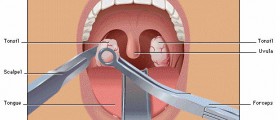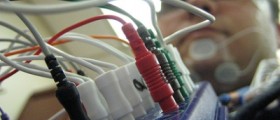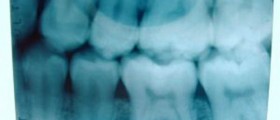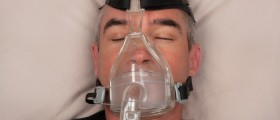my daugther was 3 years old had her toncils and adnoilds taking out now at 15 they have grown back what do i need to do have them taking out again or sue the ear nose & throat DR....
Loading...
Yes they can grow back!!! I am only 17 years old and i have had my tonsils taken out 6 times and im going for another tonsillectomy in january for my 7th time!
Loading...
omg candee i have had my tonsils taken out 7 times too but the doctors dont know why they keep growing back ive been going thru this for all my life and im 22 now they said i may have to have surgrey for the rest of my life!!!!
Loading...
yes it is un likely but yes as long as they are inflamed they can be slowely growing back
Loading...
Tonsillectomy is one of the most common surgical procedures that’s performed today. One question that I’m often asked is, can it grow back? The answer is…it depends. Overall, once you take out all your tonsils, it’s unlikely to come back. However, if you’ve only had most or some of your tonsils removed, as long as there’s inflammation, there’s increased risk that it can slowly grow back.
Tonsils are made of lymphoid tissue and make up a part of Waldeyer’s ring, with your adenoids at the top in the back of your nose, your two palatine tonsils in your throat, and your single midline lingual tonsils lower down at the base of your tongue.
During early development, your tonsils, like all the other lymph nodes in your body, educates your immune system to tell it what’s part of the body and what’s not. Normally, after childhood, the these tonsillar tissues shrink down to small nubbins.
However, if you have chronic inflammation in your nose or throat, such as from allergies or acid reflux, chronic irritation causes these “glands” in your throat to swell up. One they enlarge, they take up more space in your throat, aggravating various degrees of breathing obstructions.
Adenoids and lingual tonsils are different from palatine tonsils in that the lymphoid tissues are attached directly to the back of the nose or the tongue muscle layer. However, palatine tonsils are surrounded by a thin fibrous capsule that separates the lymphoid tissue from the muscles of the throat.
Traditional tonsillectomy usually involves removing the tonsils along with the fibrous capsule, leaving only the thin membrane covering the muscles. With adenoids, however, it’s usually scraped out, charred or debulked using various devices. It’s literally impossible to remove everything, since you’ll have to remove normal tissues.
Another recent variation of tonsillectomy involves removing only a portion of the tonsils, leaving a thin cuff of tonsil tissues that sit right next to the capsule. Common procedure names you may see include Coblation or sub capsular tonsillectomy. These type of procedures are done more for obstruction and sleep apnea, rather than for infection, where you normally want to take out everything. In theory, having residual tonsil tissues can make you more likely to have tonsillar growth, if you have constant inflammation.
Or if you have small amounts of adenoids remaining, and let’s say you have chronic allergies, then you have a higher chance of your adenoids growing back. I’ve seen this many times in my career. Overall, however, it’s still rare.
Another common condition that’s not often addressed is lingual tonsils. Many people with obstructive sleep apnea will have persistently enlarged lingual tonsils. Chronic stomach juice exposure from apnea is one major reason for these lymphoid tissues to become enlarged. If you have small jaws and a large tongue to begin with, even slightly enlarged lingual tonsils can take up more space behind your tongue, aggravating further collapse and obstruction.
What I often see is that when symptoms of sleep apnea persist or come back after tonsillectomy, it’s usually blamed on your tonsils growing back. Usually when I look, there are no tonsils remaining, but they have large lingual tonsils or significant palatal or tongue collapse. In most cases, the main reason for the multiple levels of narrowing is due to small jaws and dental crowding. Taking out huge tonsils can definitely help in some people, but most people will have persistent sleep apnea, since there will be persistent obstruction due to tongue and/or soft palate collapse.
Loading...
Mine were removed at age 14 due to chronic strep throat. Guess what? Today I went to the dr with what I thought was a mild case of the flu, and I have strep tonsils. I am 57.
Loading...
sorry to hear of your Behcet disease - i had my tonsils out when i was 11 and had an aoutoimune disease when i was 15 - Microscopic polyareriitis. now 20+ years later one of my tonsils /scar tisiiue is growing back and giving me problems on a daily basis but the consulant said its not worth a general anaestetic just to remove the tissue
